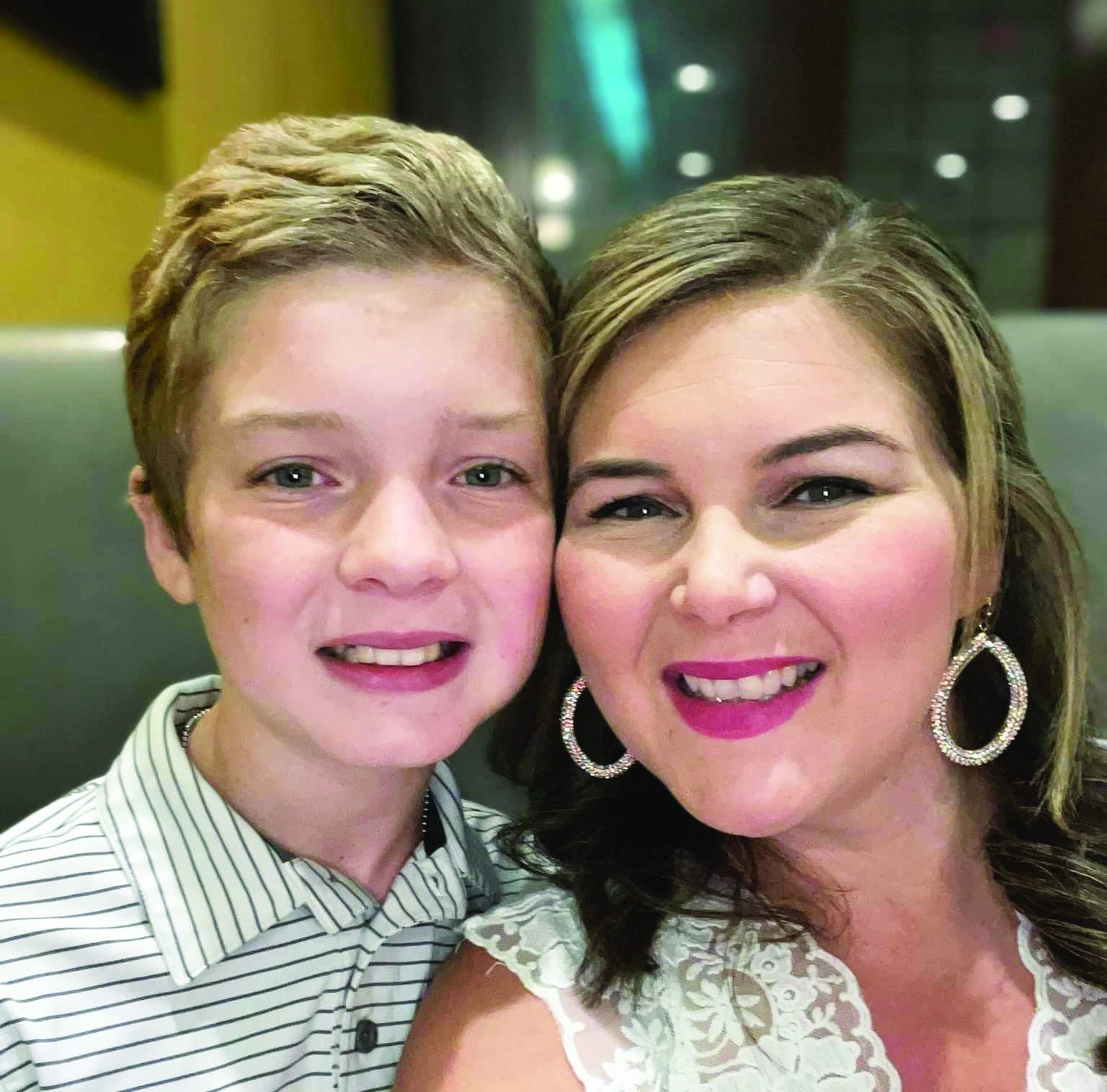Parenting the Extraordinary: When Different Is Your Normal

by Lisa Thompson
He’s good-looking if I’m being honest. Not in the way a mother thinks her son is good-looking—he could easily stand in for any of the models in Abercrombie or Ralph Lauren ads. He’s got sandy brown hair with the right amount of wave. His eyes are a deep, piercing blue. He has a strong jaw, his eyes are symmetrical, and his lips are a healthy, effortless pink. His body is thin; it always has been, but lately he’s starting to fill out with strong shoulders and thighs and a cute booty. He’d die if he read this. Or… maybe he wouldn’t.
He’s 12. While most 12-year-old boys are completely embarrassed by their moms, Porter still wants to hug and kiss me every night before bed. He’d let me hold his hand in public if I wasn’t constantly trying to make him age-appropriate. Other boys his age are not like this. I try not to notice how he’s different, but sometimes the differences are so overwhelming they sting. Even so, I remind myself that “comparison is the thief of joy.” So why do I keep doing it?
My Son is Different…
The other boys are thinking about girls, and noticing who smells good, and staying up late, and competing with peers in sports and grades and every other basic skill. They’re interested in fast cars and pop culture and texting their friends. They’re starting to treasure relationships and want to explore their independence. They can be trusted to stay by themselves (kind of) and are encouraged to take responsibility for their actions and school-work, plus a lot of other things. Meanwhile, we’re still working on pronouncing “chocolate” and “electricity” correctly. We won’t allow him to have a phone. Our biggest fear is what happens to him in the locker room at school when we can’t be there to help.
Porter is different. I wish I had a name for it. That might make things a lot easier, if I could just say “autistic” or “Down syndrome” or something else people can relate to. All I can say is that we’ve tested for all the things, ruled them all out, and we just know he’s different. He’s perfectly Porter. And that can be altogether precious and infuriating at the same time.
…But Most People Don’t Notice That.
A friend who knew me professionally told me once that they would have never guessed Porter had an intellectual disability. They’d interacted with him a handful of times and kept up with our lives on social media.
In the moment I took it as a compliment, feeling like maybe I had it more together than I thought, but the more I stewed on it, the more I realized maybe that’s where a lot of my frustration comes from in parenting a kid like Porter. I expect people to know. We live in a small town. We go to a close-knit church. He’s been around the same kids all his life, and by now I expect them and their parents, and the community-at-large, to understand—or at least try to understand—that Porter needs different things than other kids his age.
It’s true—he doesn’t look like he’s disabled. But what does a disability look like? How do we spot PTSD, or autism, or anxiety? Those things are all a form of special needs, and just like an intellectual disability, the people who own them are members of our community who need to be loved, respected and treated with dignity.
I could go on and on with examples of how Porter’s disability affects our lives and shapes and colors our family. But in case he grows up and reads this someday, I’ll try to protect his privacy in this column and speak in generalities.
It’s Him and Me
It took me a long time to admit to myself that he had special needs. First, it took having a second child who met all his developmental milestones to realize how far behind Porter was. I was in denial for a while, and then I had my own things to work through- my own preconceived ideas about what a disability looks like. I had fears and guilt to deal with before I could finally own the title “special needs parent.”
But now that I’m here, it’s a funny thing. I’m relieved. I finally have a reason why Porter has always struggled and not met his age-appropriate development goals. I’m embarrassed—cringey, the kids would say—that most moments in our life are messy and altogether off. It feels utterly exhausting to think about having a responsibility like this for the rest of my life. I’m worried and fearful—about the future, about the present, about every little thing. Yet, I feel pride when I consider how far he’s come. I am humbled that God would trust me to be his mom.
We’re Not Alone
I’m sad. So, so sad and deeply heartbroken. And I feel lonely. While there are millions who can relate to being a parent, there are not as many who can relate to being a special needs parent. Even fewer have a kid like Porter. That’s why I’m writing this column—to provide a voice in the universe who is saying “I know. I see you. I can relate, and it’s all gonna be okay.”
For now, I’m just asking everyone to be a little more kind. You never know the things other people are dealing with—whether visible or not. Let’s try to be more accepting; throw our definition of “normal” out the window. Listen more. Label less. Seek understanding. And for goodness sakes, if you know a parent with a kid who has special needs, make them feel like they and their kid belong.
Read Lisa’s follow-up article to this topic. Emotional Intelligence Helps Kids Weather Life’s Setbacks









